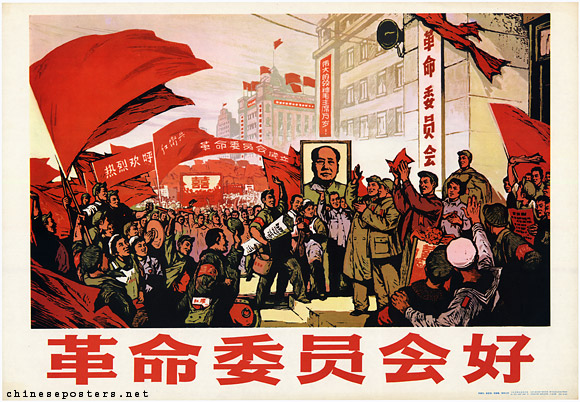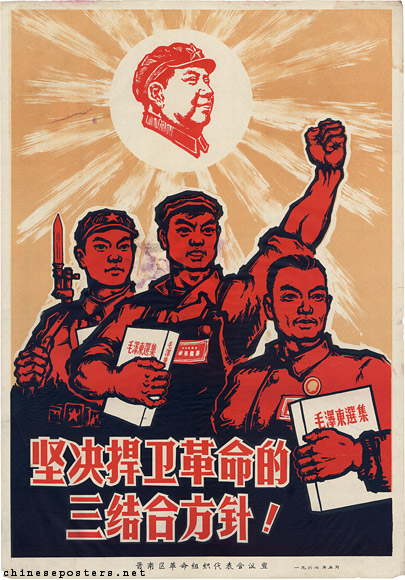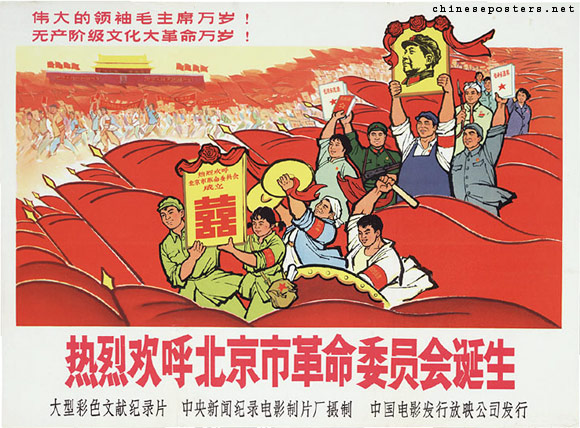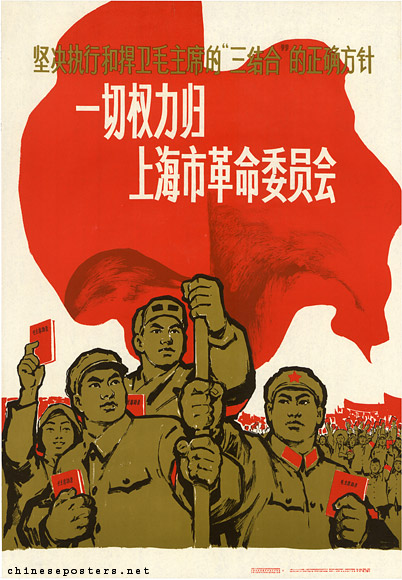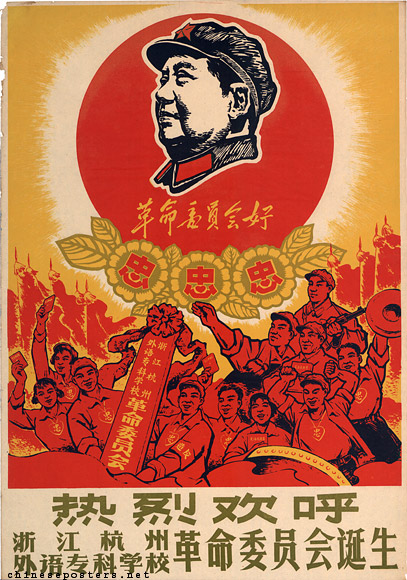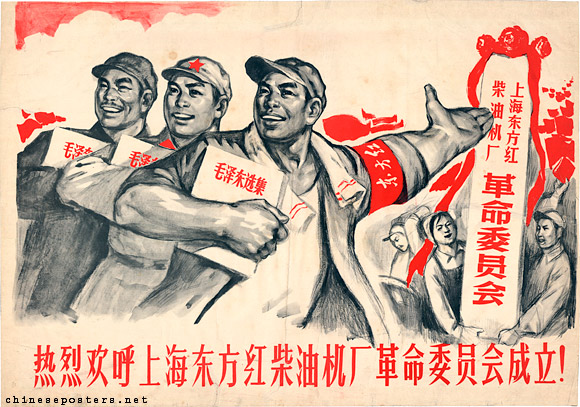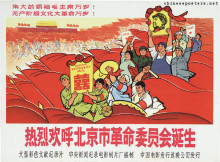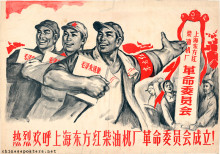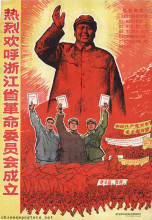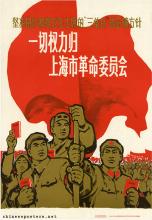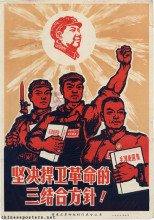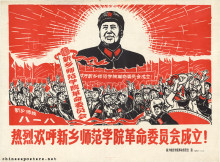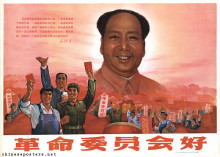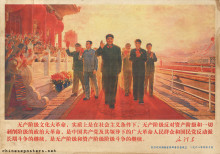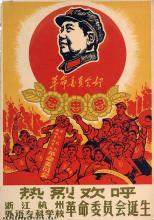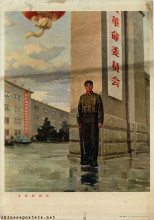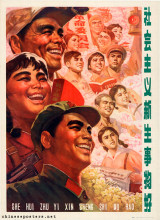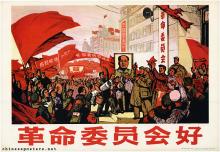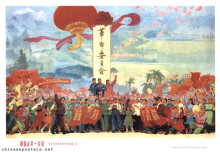Revolutionary committees are good, 1976
On 24 January 1967, Mao Zedong renamed the Shanghai People’s Commune as the Shanghai Revolutionary Committee. These Revolutionary Committees (革命委员会, Geming weiyuanhui), which were supposedly based on a "three-way alliance of Red Guards, Party cadres and army men", were to replace the original political structures that had existed until then in China.
Resolutely protect the policy of the revolutionary three-in-one combination! 1967
One of their main functions, however, was to bring the factional struggle to an end that crippled the nation. The term "revolutionary committee" itself originated in the Soviet Union, where it refered to a power structure which combined the military and the state.
Warmly hail the formation of the revolutionary committee of Beijing, 1967
The formation of the revolutionary committees was the result of the power seizures by rebel and Red Guard factions that had led to nation-wide administrative paralysis. The introduction of the committees was a very slow process. Only by 5 September 1968, almost a year and a half after their inception, the committees had been set up in all provinces, municipalities and autonomous regions, "with the exception of Taiwan". Although Mao himself had allowed that the committees were merely provisional organs of power, they remained in existence until 1979, when they were abolished and replaced by people’s governments at all levels.
The revolutionary committees were not merely organizational tools that served political purposes. All work units, from factories to schools, from workshops to rural communes, formed their own revolutionary committees to take care of day-to-day administration.
Guo Jian, Yongyi Song & Yuan Zhou, Historical Dictionary of the Chinese Cultural Revolution (Lanham, etc.: The Scarecrow Press, Inc., 2006)
Kwok-sing Li (editor) & Mary Lok (translator), A Glossary of Political Terms of the People’s Republic of China (Hong Kong: The Chinese University Press 1995)
Michael Schoenhals (ed.), China’s Cultural Revolution, 1966-1969 - Not A Dinner Party(Armonk NY: M.E Sharpe 1996)
Peter J. Seybolt, Throwing the Emperor from His Horse - Portrait of a Village Leader in China, 1923-1995 (Boulder: Westview Press, 1996)
